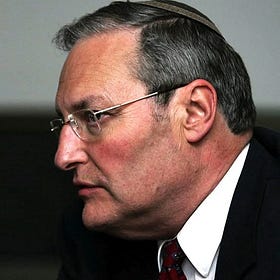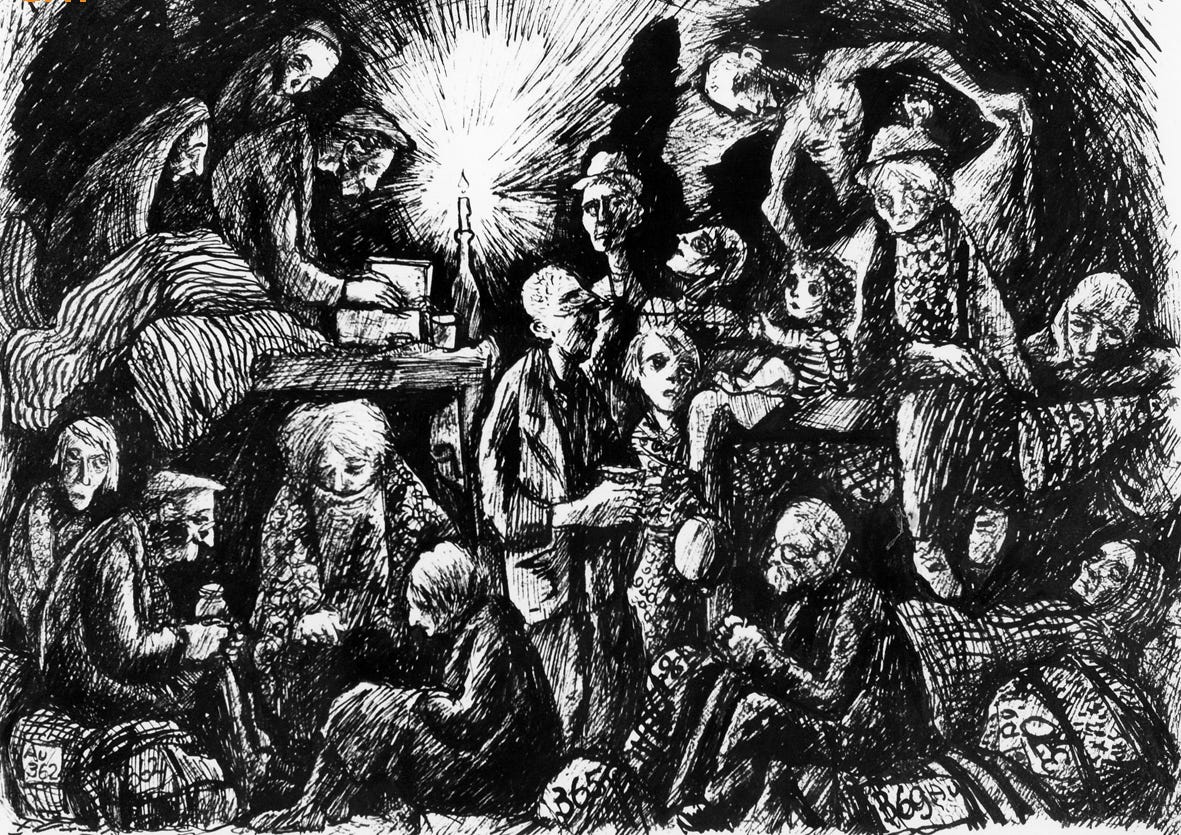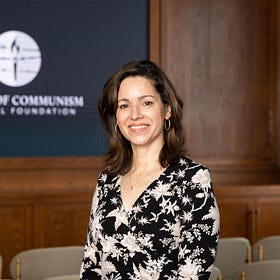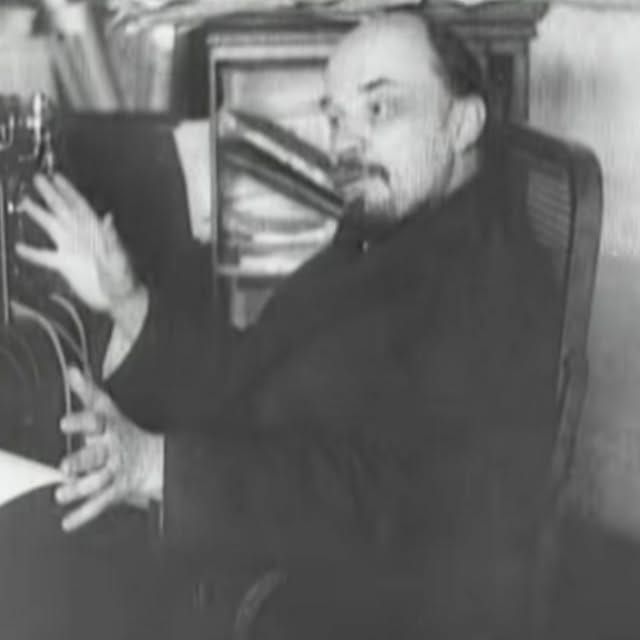Love and garbage
On the death and legacy of Ivan Klíma
As a young child before the war, the anti-communist thinker and playwright Ivan Klíma used to play alone in the garden with an old sheet on which his mother had painted cartoons. There, behind that curtain, he staged plays, teaching himself the basics of what would become his chosen medium of expression. In 1993, he wrote:
I am trying to reach, in memory, a time before the war began. What was I like then? I think that I inherited my mother’s preference for solitude. We lived in a small villa on a road leading out of Prague, north of the most industrialized part of the city; my father worked as an engineer in one of the factories. There was another house down the road, and a pub catering to those who did not want to go thirsty into the centre, where they could expect to pay more for drinks. I had no brothers and sisters at the time; my brother was not born until I was seven. A girl about my age lived in our villa, and there was another boy slightly older than me living in the house down the road. I wasn’t close to either of them, and though I did play with other children in the park, I had no close friends and spent most of my time alone with my toys. Children in those days were not surrounded by toys as they are now, so I can still remember most of mine. What sticks most firmly in my memory is a large curtain made from an old sheet, on which my mother had drawn Walt Disney’s three little pigs. Behind this curtain we prepared plays with several stuffed animals for an audience that rarely showed up. From then on, puppet theatre became a passion, and before I grew up I made several of them, one in the concentration camp at Terezin.
Like many children, I was afraid of being alone in the dark, and before going to sleep I would ask for the door to the lighted hallway to be left open. Once in a while, when my parents went out for an evening, I would make a terrible fuss, although they never left me alone in the house; there was usually a maid.
Klíma was born in Prague in September 1931 to a Czech Jewish family, though they were not religious Jews. As he later recalled, “Czech was the only language spoken at home. Mum was a patriot. We never practiced the faith.” His father Vilém worked at the local plant as an electrical engineer. His mother Marta was a secretary who spoke five languages. He had a brother seven years younger. It was a happy life, but after the Nazis invaded Czechoslovakia in 1939, young Ivan and his family were sent to the Theresienstadt ghetto in Terezín, a waystation to the extermination camps of Auschwitz, Treblinka, and Majdanek.
Interview with Nazi hunter Efraim Zuroff
Zuroff is the director of the Simon Wiesenthal Center in Jerusalem. He is the man who brought to justice Dinko Šakić, commandant at Jasenovac, the most brutally sadistic camp of the war, where Ustaše killed prisoners with hammers and saws rather than gas chambers. He is also a personal hero.
Thankfully, his father’s assignment as the electrical engineer in the camp prevented the family from being sent onward for extermination. After the war, Klíma pursued an education, studied literature, and then became a journalist, a writer, and a public intellectual. In the 1950s, when he was in his early 20s, Klíma joined the Communist Party. Like so many young intellectuals, he was hopeful for a more just society. But by his 30s, he had grown harshly critical of the party’s suppression of free thought: the way dissent was seen as treason, how secret police surveilled private correspondences, and the fact that politically incorrect cultural institutions were forced to close. In 1967, Klíma was expelled from the party after denouncing censorship at a writers’ congress. In January of the following year, Alexander Dubček, the first secretary of the party, initiated significant liberalizing reforms, calling it “socialism with a human face.” But the Prague Spring, as it came to be known, ended that August when the Soviets invaded, crushed the reforms, reinstated hardline communism, and purged the country of liberal communists. Klíma’s works were banned and he spent years able to publish only through underground samizdat or overseas — thanks to Philip Roth.
Finally, in 1989, the people overthrew the tyranny of communist rule in the Velvet Revolution, and Klíma could write again. In the novels, essays, plays, and memoirs that followed, he explored how ordinary people live under systems of surveillance and ideological coercion. As we in America are still emerging from the coercion of our own brand of Marxism, while experiencing a new form of ideological coercion under the Trump administration, I find his work eerily familiar. In it, he describes how communism was not merely an ideology, but a regime that permeated every domain of life, from work and school to entertainment, social life, even grammar. Everywhere you looked, everything was politicized, everything framed in terms of the victim narrative and the capitalist oppressors, even when it didn’t really make sense. But it became a kind of anxiety engine because everything, everywhere, was potentially offensive, potentially a signal of whether you toed the party line, every word a potential mine that, if stepped on, could end with your cancellation.
Victims of Communism with Elizabeth Spalding
Elizabeth Spalding is the chairman of the anti-communist nonprofit The Victims of Communism Memorial Foundation (VOC), based in DC. I spoke with Spalding on the eve of the VOC's 30th anniversary in 2023.
Long before the Nazis and the communists scattered my family across Eastern Europe, before the Industrial Revolution, the French Revolution, or even the American Revolution, my family lived in the forested valleys of Vysoká Lípa, then a part of the Kingdom of Bohemia, but later Czechoslovakia. And so, while I was raised culturally Russian, I have always felt a connection to Czechia, and have been to Prague multiple times. For that reason, and because of his anti-communist teachings, I have read Klíma with grim fascination. In his work, he brings the darkest years of his nation to life, paying particular attention to the ways in which the horrors of communism were not only political, but deeply personal, even intimate. How it curled its way into the narrowest, most private parts of people’s lives — much like, to use the modern term, a mind virus. I am also reminded of our current American experience when I think of how similar ideologies have wormed their way into our schools, our churches, even between marital partners, or parents and their children.
“To destroy is easier than to create,” he once wrote, “and that is why so many people are ready to demonstrate against what they reject. But what would they say if one asked them what they wanted instead?” This too is difficult to read without seeing how it also speaks to our current political circumstance. It’s from his novel Love and Garbage, in which he tells the story of a man consigned to the labor of collecting refuse in Communist Prague. As the man shovels through the filth, he reflects on love, on the bodies he has loved, on the waste of human life, and on the possibility of tenderness and what it means to be human under an ideology that treats humans as disposable as the trash he dumps each day. But however bleak that sounds, to read Klíma, you learn that nothing, no communist gulag or fascist death camp, can stomp out the human imagination or the love that lives in the human heart.
Klíma died yesterday at the age of 94, leaving behind a rich body of work that resists not only communism, but the forgetting that communism would so badly like to bring about. Because even in death, Klíma teaches us not to look away, but also not to despair, not to become nihilistic or black-pilled. He reminds us that among our greatest weapons are our memories and words. Perhaps most of all, in refusing to let us forget the beauty or the horror, he helps us reconcile the love and garbage of humanity. As he once wrote, “I realized the amazing power of literature and of the human imagination generally, to make the dead live and to stop the living from dying.”







The Theresienstadt ghetto in Terezín is mentioned in this article. There is a book titled "I Never Saw Another Butterfly" by Hana Volavková. First seen as a 16 year old, this book of Theresienstadt children's art and poems has had a lifelong impact on me. Beautiful and sad as each child's name, age, and place of death is noted.
Thank you for this excellent article.